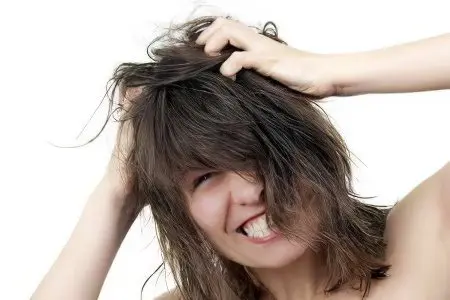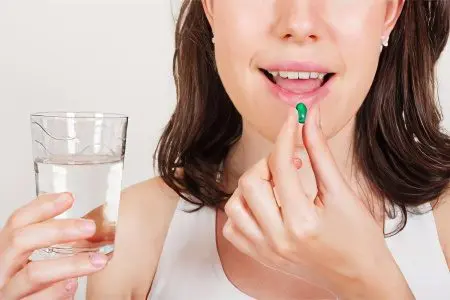Itching of the scalp is a feeling of discomfort that makes you want to scratch the irritated area. This feeling can be both temporary and permanent, it can cause serious inconvenience to a person. Most often, the head itches due to exposure to the skin of some external irritant, although it is possible that the symptom was provoked by a particular disease.
Regularly occurring itching of the scalp cannot be ignored, as it indicates trouble in the body. A mandatory appeal to a trichologist requires the appearance of rashes and peeling on the skin of the scalp.
Causes of itchy scalp

Pediculosis. Head lice can lead to severe itching. The parasite often passes from one person to another, especially when sharing personal items and when personal hygiene is not followed. In addition, head lice can affect the mustache, eyebrows, and beard. Itching occurs due to lice bites. These parasites use human blood to feed and reproduce.
Dandruff. This disease, in addition to severe itching of the scalp, is accompanied by the appearance of scales, which are desquamated epithelium. Hair loses its shine, becomes dry and brittle, or, conversely, acquires a greasy sheen. Dandruff is often a symptom of psoriasis, seborrhea, mycotic lesions of the scalp, beriberi, and even problems with the gastrointestinal tract. Therefore, itching of the scalp, accompanied by the appearance of dandruff, should not be ignored.
Seborrhea. This is an inflammatory process that is caused by excess sebum production. Itching, peeling and thickening of the stratum corneum are the main symptoms of seborrhea. The disease requires consultation with a dermatologist or trichologist.
Allergic reactions. The scalp may itch when using new scalp care products. It can be a mask, shampoo, conditioner, styling mousse, etc. If itching occurs immediately after the first application, it is best to refuse to use the product. At the same time, it is worth noting for yourself new substances that could cause an allergic reaction. If, after the withdrawal of a potential allergen, itching continues to worsen the quality of life, then you should consult a doctor for advice. It is also worth paying attention to washing powders. The components included in their composition can cause allergies and itching if the bed linen was poorly rinsed. In addition, an allergic reaction can occur in response to taking poor-quality food, as well as when undergoing therapy with inappropriate medications.
Dry scalp. With too frequent washing, excessive use of styling products, constant use of a hair dryer, curling iron or tongs, the sebaceous glands may malfunction. At the same time, the scalp becomes dry, begins to peel off and itch, small dry dandruff may form. Excessive exposure to the sun can lead to dry scalp.
Stress. The cause of itching of the scalp can be excessive emotional stress, frequent stress, mental instability, overwork.
Demodecosis This is a skin disease that is provoked by microscopic mites. They parasitize in human hair follicles and sebaceous glands. Possible damage to various parts of the body and head. When infected, patients report severe itching of the scalp and hair loss.
General diseases of the body. Itching on any part of the body can provoke various diseases: liver and gallbladder damage, multiple sclerosis, diabetes mellitus.
Psoriasis. This disease is able to capture the scalp. Most often, an itchy spot occurs in areas prone to oiliness. Sometimes psoriasis can be confused with seborrhea, as a large amount of dandruff forms on the head;
Eczema. Often on the scalp, eczema proceeds according to the type of seborrhea, it is possible to identify not only fungal, but also streptococcal infections. The disease causes itching of the scalp, neck and ears.
muscle tension. An increase in the muscle tone of the back, shoulders and neck can lead to the occurrence of itching of the head. Itching occurs due to the deterioration of blood microcirculation.
Poor hygiene. Itching can be provoked not only by frequent shampooing, but also by neglecting this procedure. As a result, various impurities accumulate on the hair, which provoke irritation and itching.
Avitaminosis. The lack of vitamins of group B negatively affects the condition of the scalp. Vitamin deficiency can lead to itching, hair loss, increased fragility, etc.
Folliculitis. Pustular lesions of the scalp can also provoke itching. The more rashes, the brighter the symptom will be.
Exposure to chemicals. Often itching is provoked by improperly selected hair dye or its incorrect use. In order not to harm your own health, it is imperative to conduct a preliminary test for the sensitivity of the body to a specific chemical composition. To do this, the agent is applied to the elbow and kept for several hours. If there is no reaction, then the paint can be applied to the scalp.
Perm can cause a burning sensation and itching. If undesirable reactions appear, it is better to refuse such procedures subsequently.
Treatment for itchy scalp

Pediculosis treatment is based on the treatment of the scalp. Most often, one application of a special spray is enough, although sometimes it may be necessary to repeat the procedure. As for small children, it is possible to simply shave off the hair. This will avoid the exposure of the child’s head to potentially harmful chemicals.
To get rid of dandruff, you need to review your own diet, exclude fried, fatty and spicy foods from it. It also shows the use of shampoos, which contain an antifungal component. Such means are Nizoral, Climbazol and others. If internal diseases have become the cause of dandruff, then their identification and timely elimination is necessary. Physiotherapy can improve the nutrition of hair follicles, in particular, cryomassage, darsonvalization, etc.
Seborrhea of the scalp requires adherence to dietary nutrition, the use of medicated shampoos, rubbing products containing zinc and tar into the scalp. It is possible to use hormonal drugs in the form of ointments. They are prescribed for the ineffectiveness of the treatment of seborrhea with antimycotic therapy.
If itching of the scalp is the result of an allergic reaction, then the allergen must be excluded. If even after it is eliminated, the itching does not go away, you should seek advice from an allergist and trichologist to identify the cause of this condition. You may need to take antihistamines.
If itching of the scalp is caused by excessive dryness, it is necessary to exclude irritating factors. It is worth abandoning the too frequent use of tongs, a hair dryer and other devices that have a thermal effect. Washing your hair should also not be frequent. Dry scalp requires washing no more than twice a week, always with specialized shampoos. It is also worth protecting your hair and scalp from exposure to ultraviolet rays. To do this, in sunny weather, you need to wear a hat.
Treatment of psoriasis of the scalp should be comprehensive. Sedatives, antihistamines, mild diuretics and NSAIDs are used.
Treatment of eczema of the scalp is carried out using antimicrobials, antihistamines, sedatives. Local treatment is of no small importance.
To get rid of demodicosis, therapy with antiparasitic agents, the use of local preparations based on Metronidazole, essential oils is necessary. It is possible to undergo electrophoresis with the use of moisturizing formulations.
Care
As for the rules for hair care, there are several basic points:
It is necessary to wash your hair as your hair gets dirty;
Do not use hard water, alkaline products to wash your hair;
Hair should be combed thoroughly, which helps to improve blood circulation in the scalp;
Protect your hair from exposure to sunlight and cold. Headgear should be selected in accordance with the weather conditions.
Itching of the scalp can be a symptom of serious diseases, so you should not leave it unattended. In addition, the stronger the itching, the more discomfort it causes to a person. Therefore, it is worth visiting a trichologist or dermatologist if all the obvious causes of itching have been eliminated (allergens, insufficient or excessive hygiene), and the itching continues to haunt.
Author of the article: Herman Olga Leonidovna, trichologist, specially for the site ayzdorov.ru









